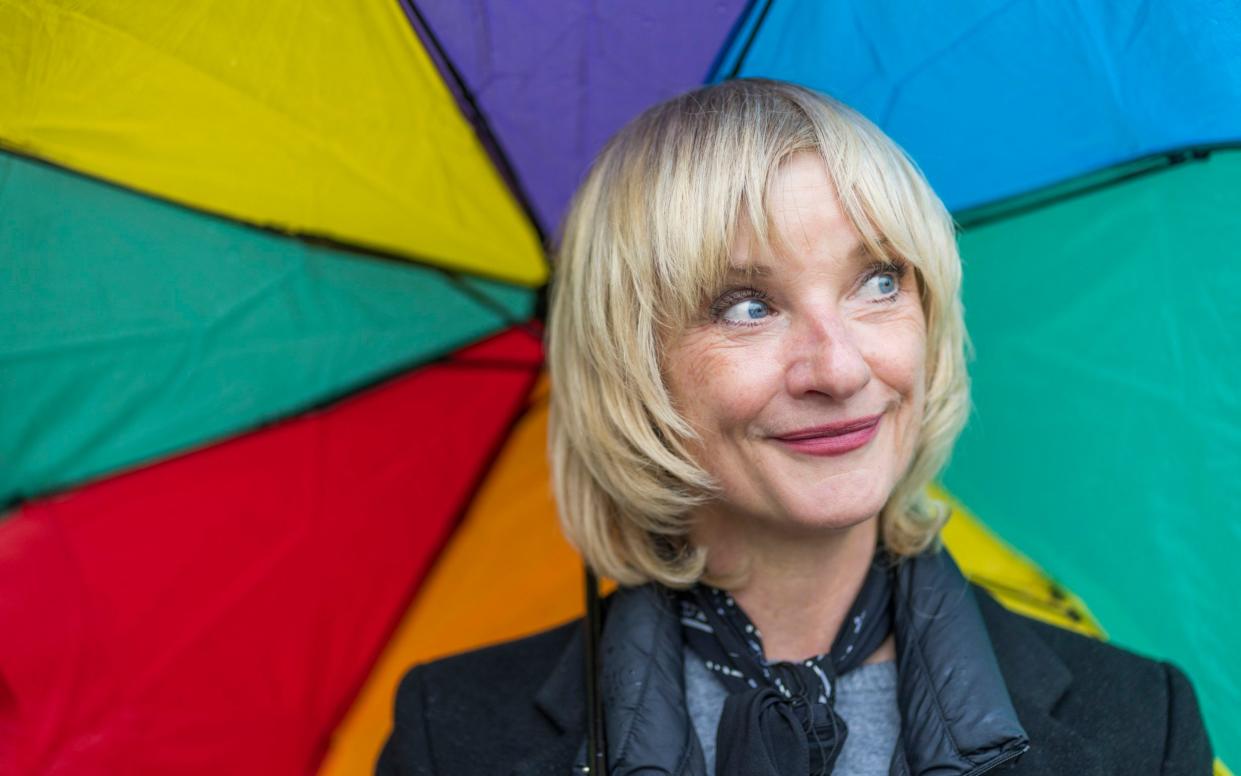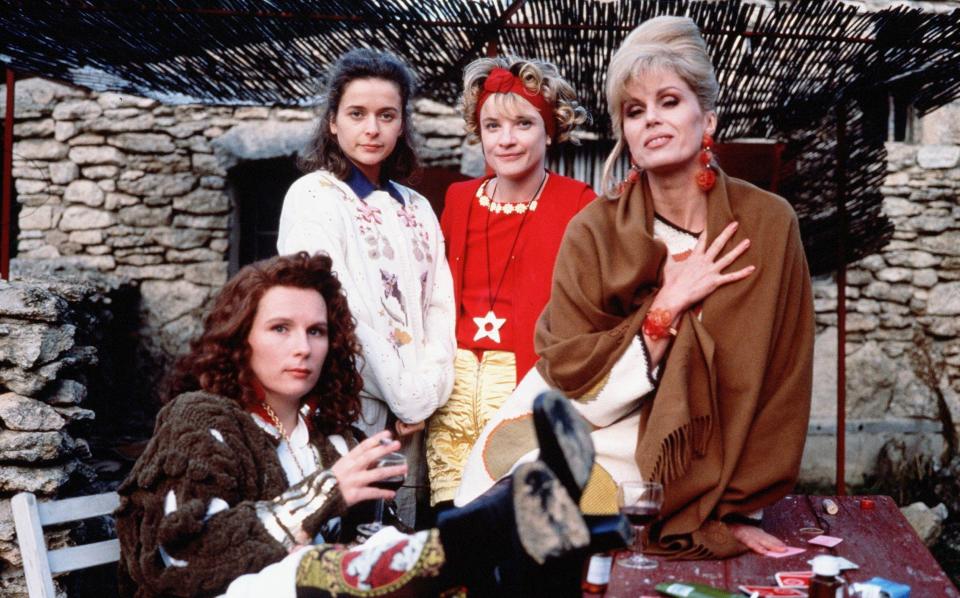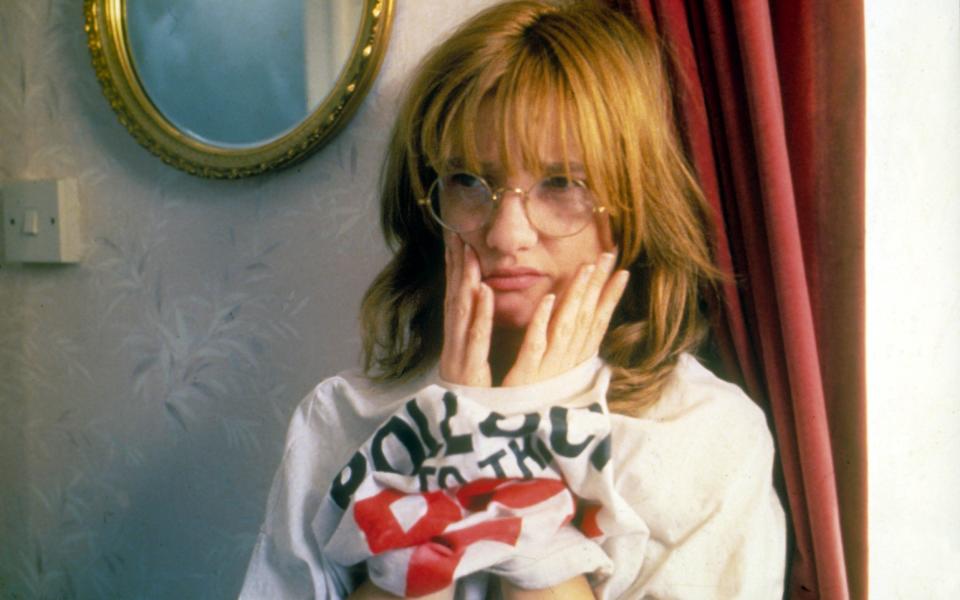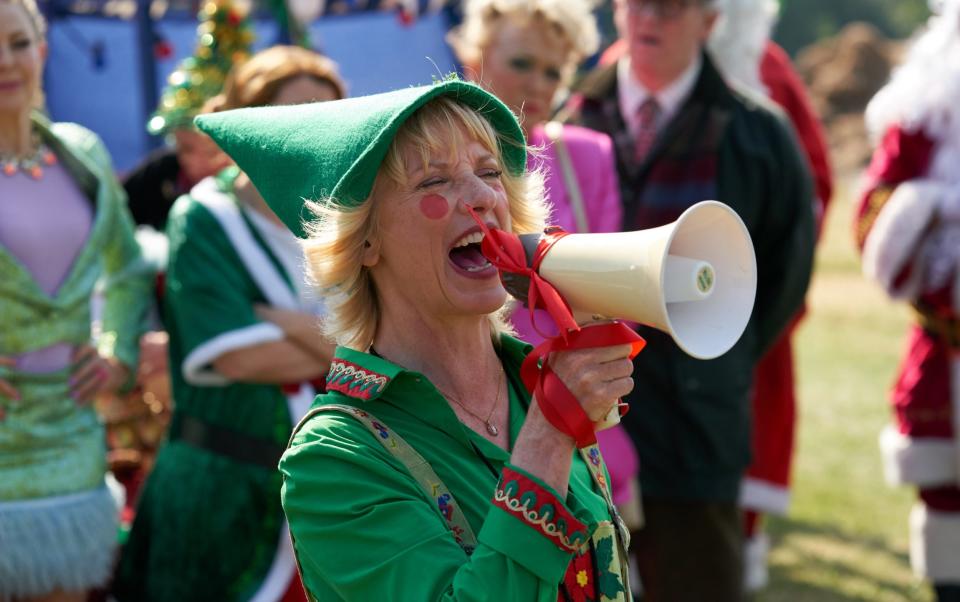Jane Horrocks: ‘I don’t do sexy – good-looking actresses can end up on the scrap heap’

For an actress of such diminutive stature, Jane Horrocks loves to go over the top. “Ab Fab, that was larger than life, but it still resonated with people,” she says of the glorious 1990s Jennifer Saunders sitcom in which Horrocks indelibly starred as the daffy assistant Bubble, dressed invariably like something off a Christmas tree.
“But you don’t get that sort of comedy any more. You don’t get those big character sketch shows like The Catherine Tate Show, or The Fast Show. That sort of comedy is these days considered a bit coarse. The tradition now is to underplay everything. It’s all about the cool irony.”
Cool irony is not a style readily associated with Horrocks. She’s all about the caricature, those “big, fleshed out characters you can gorge on,” as she puts it. This Christmas she can be seen giving it her all in two such outsized examples – as the voice of the guileless Babs in the sequel to Aardman’s 2000 animated hit Chicken Run, and as the hatchet-faced village butcher Annette in Blood, Actually, the Christmas special for Johnny Vegas’s series Murder, They Hope.
“It’s a got a beginning, a middle and an end,” she says almost proudly of the goofy, League of Gentlemen-meets-Wickerman-style spoof which sees the newly married Terry and Gemma reluctantly embroiled in the case of a serial killer seemingly intent on taking out every participant in a Santa competition in a tight-knit rural community.
Starring an array of reliable mid-brow comic talent, including Anita Dobson and Lee Mack, it’s the TV equivalent of cosy crime with a large brandy-sized ladle of English silliness swirled in. “It probably sounds a bit old-fashioned. But that’s the sort of comedy I respond to.”

Horrocks, 59, doesn’t care for fashion. Not for her a career built on awards and magazine covers and audience ratings. For someone with such bankable comic talent, many of her choices in the last few years have been determinedly personal, below the radar and self-generated. There was If You Kiss Me, Kiss Me in 2016 – a piece in which Horrocks performed her favourite new wave covers; Cotton Panic!, a devised show about the Lancashire cotton industry at the Manchester International Festival in 2017; and Love Pants, the 2022 Radio 4 drama she created about her late 1980s relationship with the singer Ian Drury.
“I like niche,” she says. “There is so much stress placed on having a successful project that attracts a certain amount of likes, or whatever. Young people in the industry now – they have to have so many followers just to get work.”
Horrocks and I meet in a cafe in Brighton where she now lives, following the end of her two decade relationship to the writer Nick Vivian with whom she has two grown-up children. She looks exactly the same as she always has – high cheek bones, impish eyes, blonde, elfin crop. And of course, she sounds exactly the same, too – that soft Lancashire twang as broad and warm as ever. That voice is both her capital and her USP. “I love hiding behind a voice, a persona,” she says. Even plastic chickens. “I do think the voices can be a bit bland in animation these days, you can’t really see who the character is. Studios seem to want big names for animation just for the sake of it.”

I put it to Horrocks that she too, is a big name, although she demurs. “I never see myself as that,” she says. All the same, 25 years ago she was on the verge of Hollywood stardom. After graduating in 1985 from RADA where her contemporaries included Imogen Stubbs and Ralph Fiennes, and following a brief stint with the RSC, she found early success with the combative bulimic Nicola in Mike Leigh’s 1990 film Life is Sweet. Then, in 1992, came The Rise and Fall of Little Voice, the play about a recluse with an extraordinary singing voice and written for her by Jim Cartwright after he heard Horrocks singing Judy Garland during rehearsals for his previous play, Road, and which became a West End smash-hit.
How did it feel to find herself starring in a West End show built entirely around her? “I was horribly anxious when he suggested it – I’m not a trained singer,” says Horrocks who as a child famously would indeed sing Barbra Streisand in her bedroom, although she is keen to point out she also immersed herself as a teenager in Burnley’s New Romantic club scene. “During rehearsals I could only sing if I was hiding behind a pillar.”
The play was turned by Cartwright into a critically acclaimed film in 1998 and Horrocks, by now a celebrity after the success of Ab Fab, found herself in America, enduring “rounds of promotional interviews in which everyone asked the same thing. I didn’t really like it.” She was also pregnant with her daughter, her son still only 18 months, and rather than stay in LA to capitalise on her success she came home.
She doesn’t regret it. “I’ve always thought Hollywood would be quite a lonely place to be.” She also thinks she would never have fitted the Hollywood mould. “I don’t do sexy. And at RADA, it was almost frowned upon to think of yourself as a character actor. But I knew I was never going to be the leading lady. You had to be good-looking to be that back then. Now I’m grateful. Because some of the good-looking women in particular I knew at RADA, and the RSC, once their looks start to fade they can find themselves on the scrap heap. Which as an actress can be really tough.”
Her life has been one long story of never quite doing the expected. It was, for instance, not the done thing for a village girl from Lancashire to dream of becoming an actor in the first place. “The expectation in the community was that you would find a job within the valley. But I always thought there was something beyond Lancashire for me.” It was not done at RADA to cling to a regional accent. “If I had ditched it, I might have got more mainstream parts, but I always refused to. It’s a part of me.”
Throughout her career her choices have been unerringly unpredictable. In 1995 she starred as Lady Macbeth opposite Mark Rylance in a production, notable because it required Horrocks to urinate live on stage each night. In 2018 she popped up out of the blue as Regan opposite Glenda Jackson in Deborah Warner’s King Lear. (And fondly remembers eating Hoola Hoops and drinking wine each night in her dressing room with Jackson, who died in June this year.)

In 2022 she appeared, cast entirely against type, as an upper class English expat in Christopher Hampton’s colonial-era drama The Singapore Grip. Each time she finds herself being pigeonholed she moves in a different direction. “The other day I was offered a role that was a bit Bubbles. But I don’t want to do that at at the age of 59.”
She thinks the abundance of roles for women her age is limited. “There are a handful of actresses doing really well. But an awful lot of talented women my age are stuck playing mums.”
Not Horrocks of course – not least because she found herself being offered a lot of fragile single mum types when she was younger, because of the way she looks, and abruptly refused them. Early next year she can be seen on stage again, in as yet unannounced new play.
All she will say about the role is this. ‘The director said I could play it as a femme fatale, or as an oddball. And I practically screamed ‘oddball!’”
Blood Actually: A Murder, They Hope, Mystery is on Gold on December 16; Chicken Run: Dawn of the Nugget is on Netflix from December 15


